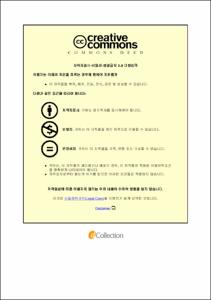Integrating Biosecurity for a Successful Shift from Subsistence to Sustainable Aquaculture in Democratic Republic of Congo
- Alternative Title
- 콩고공화국의 영세한 양식업을 지속 가능한 시스템으로 전환하기 위한 생물안전의 도입
- Abstract
- Aquaculture has recently been recognized among the sectors to promote for poverty reduction and to ensure food security in DR Congo. This industry experienced fast growth in the mid-1980s worldwide, to become the animal production with the fastest growth. With the development of aquaculture, diseases issues came along, having serious socio-economic and environmental impact. By developing aquaculture, DR Congo will certainly be exposed to this challenge other countries faced around the world. It is therefore important to prepare the necessary tools to prevent or mitigate the impact of diseases, learning from other countries’ experience. A literature review on DR Congo’s aquaculture, biosecurity in aquaculture and experiences of some countries, coupled with a survey to investigate awareness of Congolese aquaculture officers and farmers on diseases issues and biosecurity were conducted. The lack of provisions on aquatic life health management and the weakness of general support services to aquaculture represented the lapses identified at managerial side while general farming practices and farm management represented the biosecurity lapses from the farmers’ side. This study, through identification of some measures to take at both the national level and the farm level, proposes guidelines for integration of biosecurity to guide the development of an economically viable, sustainable aquaculture sector in Democratic Republic of Congo.
- Issued Date
- 2017
- Awarded Date
- 2017. 2
- Type
- Dissertation
- Publisher
- 부경대학교 글로벌수산대학원
- Affiliation
- 부경대학교 글로벌수산대학원
- Department
- 글로벌수산대학원 국제수산과학협동과정
- Advisor
- 김도형
- Table Of Contents
- Chapter 1. Introduction 1
1.1. Introduction 1
1.1.1. Background 1
1.1.2. Concept of biosecurity in aquaculture 2
1.1.3. Aquaculture in Democratic Republic of Congo 4
1.2. Statement of the problem 5
1.3. Objectives 7
1.3.1. Main objective 7
1.3.2. Specific objectives 7
Chapter 2. Research Methods 8
Chapter 3. Results and Discussion 13
3.1. Aquaculture in DR Congo 13
3.1.1. Aquaculture history and general overview 14
3.1.2. Farming systems distribution and characteristics 15
3.1.3.Aquaculture governance 16
3.1.3.1. Policy framework and national regulation 16
3.1.3.2. Institutional landscape 16
3.1.4.Animal health management 18
3.2. Biosecurity concept in aquaculture 19
3.3. Identified biosecurity issues in DR Congo's aquaculture 21
3.4. Integrating biosecurity in DR Congo’s aquaculture 22
3.4.1.National aquaculture biosecurity 23
3.4.1.1. Aquaculture biosecurity policy and regulations 23
3.4.1.2. Monitoring and surveillance 24
3.4.1.3. Aquaculture biosecurity research 26
3.4.1.4. Education, training and information sharing 27
3.4.1.5. Multi-sectorial collaboration 29
3.4.1.6. Import Risk Analysis 30
3.4.1.7. International agreements, codes and standards 31
3.4.2. Farm level of biosecurity 34
3.4.2.1. Farm sitting and design 35
3.4.2.2. Input utilization, control and management 36
3.4.2.3. Ponds maintenance and effluent management 39
3.4.2.4. Personnel and farm site traffic management 41
3.4.2.5. Farm level biosecurity plan and standard operation procedures (SOPs) 43
3.4.2.6. Integrating HACCP 44
3.4.2.7. Record keeping 44
3.4.3. Summary 45
3.5. Limitation of the study 48
Chapter 4. Conclusion and recommendations 49
4.1. Conclusion 49
4.2. Recommendations 50
4.2.1. Short-term recommendations 50
4.2.2. Mid-term and long-term recommendations 51
Acknowledgement 52
References 53
- Degree
- Master
- Appears in Collections:
- 글로벌수산대학원 > 국제수산과학협동과정
- Files in This Item:
Items in Repository are protected by copyright, with all rights reserved, unless otherwise indicated.
